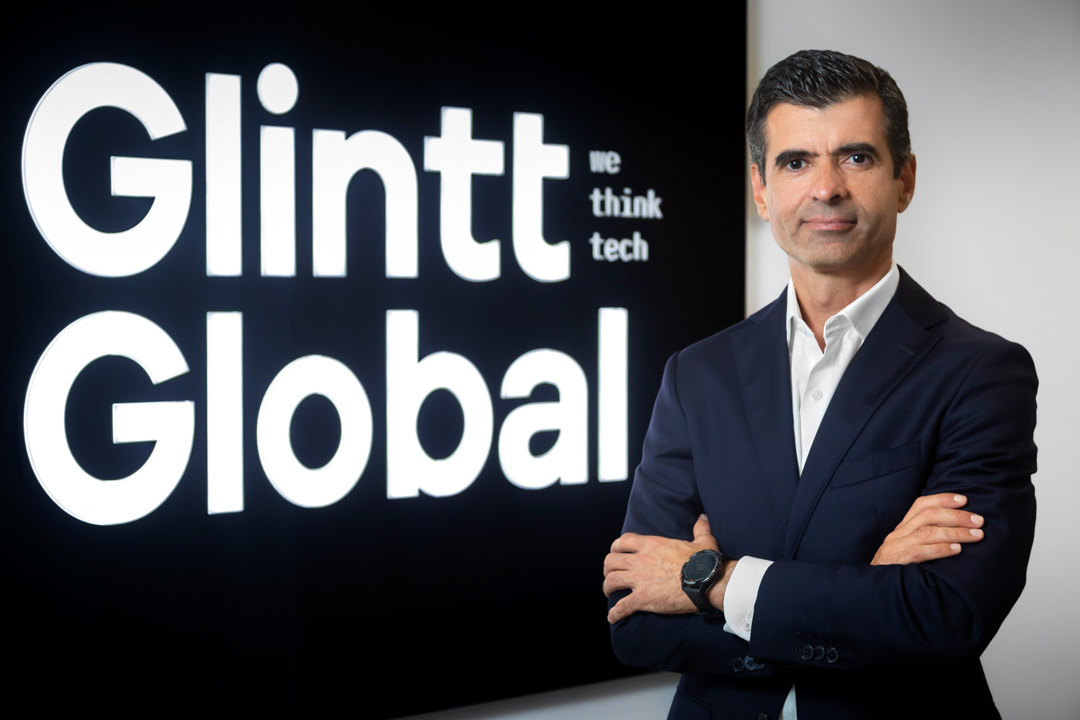The plan is to have one formalised in each country by the end of the first half of the year. “We believe we can do business in other countries, based on the nearshore model from the Iberian Peninsula and also using some offshore people from Latin America,” director Miguel Leocádio told JE.
Glintt Next is preparing to create at least four joint ventures with companies in the UK, France, Germany and Sweden as a way of expanding the business in Europe. The information was given to Jornal Económico (JE) by director Miguel Leocádio, without specifying whether they will be alliances, commercial partnerships or mergers of companies.
“We’re still in contact, so I can’t say much more than that. By the end of the first half of 2024, we want to have at least one joint venture formalised in each of these four countries,” the executive director of Glintt Global, which is dedicated to technology consultancy and digital services, told JE.
“It’s one of the objectives that we have and which is now getting more energy in 2024 to have business in four new countries. We believe we can do this, based on the nearshore model from the Iberian Peninsula and also using some offshore people [outsourcing] from Latin America, which we have plenty of for Portugal,” explained Miguel Leocádio.
Asked if these joint ventures will be like the one they did with Spanish pharmaceutical distributor Cofares in 2019, Miguel Leocádio admitted that they would be. “Joint ventures can have different configurations. It will depend on each case. They can even reach this point of formalisation or involve creating a joint business plan, with responsibilities or some kind of joint investment,” he told JE.
The main growth driver for Glintt Global, which has around 1,200 employees and more than 30 years of history, will be international business: both in this group of new markets and in Spain, where it has been for several years and which generated growth of more than 11 per cent in international turnover in the third quarter of 2023, along with Brazil and Angola. Last year’s results will be published on 5 April.
As for the change that the former Glintt – Global Intelligent Technologies made at the beginning of this year, officially becoming Glintt Global with two divisions – Glintt Life for healthcare and Glintt Next linked to digital consultancy – Miguel Leocádio summarised that the disappearance of the Nexllence brand, launched during the pandemic, “wasn’t about going wrong”.
“We spent 2023 rethinking our range of services and solutions and ended up making some decisions during the year and making bets, the main one for 2024 and the following years being to create an area very focussed on data and Artificial Intelligence. Why? It has a very strong (perhaps unprecedented) potential for business transformation,” explained the head of Glintt Next.
What’s more, the rebranding was important for the way the company presents itself to the international market, disassociated from health exclusively. Miguel Leocádio even recalls a phrase he often says – “for business there is an opportunity everywhere, we just have to find out where it is” – and gives the logistics, financial and public sectors as examples.
“In the world of logistics, where we work a lot in the pharmaceutical area to deliver medicines, it’s a lot about anticipating consumption needs so that I, as a distributor, can anticipate future orders that will arrive and optimise stocks. Logistics and distribution companies have a lot to gain here,” he suggested.
Even in banking, he believes that a financial institution could use these systems to anticipate customers’ investment or credit needs. “It doesn’t happen much yet, but it will be increasingly common for us to receive very specific proposals for the application of funds, etc. I’m not talking about generalised proposals, as is the case now, where a bank sends the same proposals to a group of people or to a segment in an attempt to get one right,” he warns.
With regard to the Public Administration, he foresees that “in a very short time” it will be possible for public services to automatically draw up the citizen’s task guide during a situation of paternity, maternity, marriage, divorce and/or house purchase (changing address, applying for leave and benefit…).
With generative Artificial Intelligence, there is less and less reason for me, as a citizen, not to have public services working for me proactively. At the end of the day, all we have to do is give the OK – Miguel Leocádio
source: sapo


